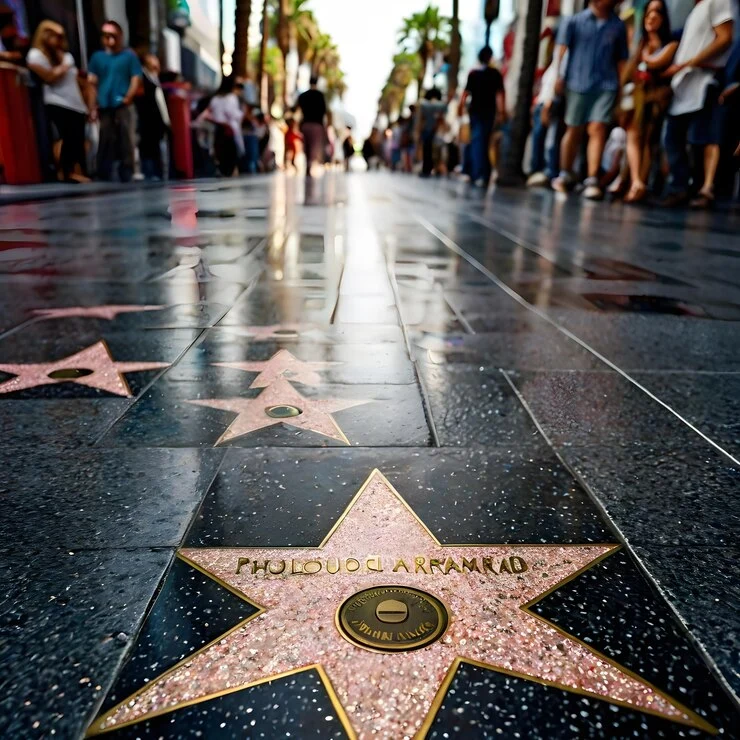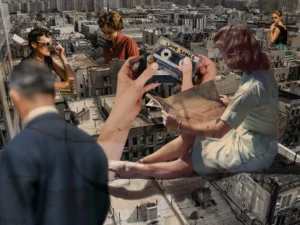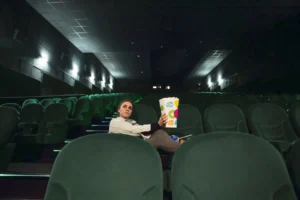Austin Butler meets the new star that Hollywood won’t let go of. Hollywood thrives on its next big thing — and every few years, the industry gets swept up by a talent so magnetic, they seem destined to define a generation. Austin Butler, who ascended to global stardom following his critically acclaimed performance in Elvis (2022), now finds himself in the unique position of sharing the spotlight with someone the industry is calling “unshakable.”
Austin Butler: From Disney Heartthrob to Serious Contender
Let’s not forget how quickly Butler rewrote his career. Once known for teen-oriented roles, he stunned critics and audiences alike with his transformational turn as Elvis Presley under Baz Luhrmann’s flamboyant direction. His performance earned him a Golden Globe Award and an Oscar nomination, catapulting him from pop-culture familiarity to serious prestige.
That kind of breakout is rare — and in a post-DiCaprio as Jack Dawson landscape, Butler now occupies the same rare air as actors who can pivot between blockbuster and arthouse with credibility intact.
But now, as Butler solidifies his place in Hollywood’s upper echelon, a younger wave is arriving, more specifically, in the form of actors like Elordi, who’ve found an audience equally obsessed with both character depth and visual allure.
Jacob Elordi: The Meteoric Rise of Hollywood’s Favorite Enigma
Few newcomers have stirred conversation like Jacob Elordi, an actor whose career has shifted dramatically from teen drama to artistic heavyweight. After his breakout in Netflix’s The Kissing Booth franchise, Elordi took an unexpected and career-defining turn by embodying complex, emotionally volatile characters — most notably Nate Jacobs in HBO’s Euphoria.
But it was his role as Elvis Presley in Priscilla (2023), directed by Sofia Coppola, that cemented his credibility with film connoisseurs. In contrast to Butler’s hyper-stylized portrayal, Elordi’s interpretation was subdued, internalized — almost haunting. The juxtaposition of their performances, unintentionally or not, led to widespread comparisons and intensified the media narrative around their “rivalry.”
This overlap in roles placed Butler and Elordi in direct conversation — not just artistically, but symbolically. Hollywood had already declared Butler a generational talent. Now, it seemed, it had also found his successor… or perhaps, his equal.
When Icons Collide: Cannes, Venice, and Vanity Fair
The two stars met publicly at the 2023 Venice Film Festival, sparking fan fervor. Photos of the two chatting — Butler in a sharply tailored tuxedo, Elordi in laid-back Prada — circulated instantly. The contrast in energy was striking: one polished and poised, the other enigmatic and reserved.
That moment wasn’t just a viral image; it was a cinematic metaphor. Hollywood isn’t about replacing its icons — it’s about expanding its pantheon. And right now, both Butler and Elordi are ascending to mythic status, but by entirely different means.
Parallel Paths, Divergent Choices: Why Hollywood Can’t Let Them Go
Austin Butler and Jacob Elordi are not battling for roles — they’re defining two distinct cinematic energies that Hollywood desperately needs. Butler’s trajectory leans toward the grand, transformative, and emotionally charged. His upcoming roles include Dune: Part Two as the chilling Feyd-Rautha Harkonnen, and an upcoming Michael Mann-directed biopic in talks that places him again in a legacy-heavy role.
Elordi, on the other hand, is quietly becoming the poster boy for subtle intensity. Following Priscilla, he’s taking calculated steps into indie territory with directors like Paul Schrader and Sean Baker reportedly eyeing him for future projects. He’s not chasing fame — fame is chasing him.
This duality is what’s captivating the industry and audiences alike. It’s not about who will outshine the other — it’s about how both are shaping modern masculinity on screen. One externalizes legacy, the other internalizes trauma. It’s classic method actor vs instinctive presence — a dynamic Hollywood rarely gets to explore in real-time.
Social Media and the Myth-Making Machine
Both actors have become subjects of viral discourse, but for wildly different reasons. Butler’s dedication to method acting (staying in character long after production wrapped) earned him admiration and critique alike. His Elvis voice lingered in interviews — a detail that turned into both meme and myth.
Elordi, on the other hand, is famously media-averse. He loathes overexposure and rarely plays into tabloid culture. That restraint only fuels his appeal — making him the kind of star whose silence is louder than a thousand red carpet interviews.
🤔 Which approach do you think sustains longevity in an industry obsessed with visibility?
This contrast adds an intriguing psychological layer to their parallel rise — one thrives on immersion, the other on detachment.
The Future of Hollywood Royalty: Beyond Comparison
Trying to pit Austin Butler against Jacob Elordi misses the larger picture. Both are shaping modern cinema in ways that mirror the evolving tastes of audiences and the ambitions of a film industry in flux. One leans toward spectacle and immersion. The other chooses ambiguity and introspection. Their coexistence, rather than rivalry, is what makes this cinematic moment electric.
What they share, perhaps more than anything, is timing. They emerged just when Hollywood needed them — post-pandemic, post-franchise fatigue, in an era where audiences crave both charisma and authenticity. Their films are not just performances; they are case studies in how to lead with either soul (Elordi) or fire (Butler).
The Power of Dual Stardom
In the past, Hollywood often chose one leading man to represent a generation — a James Dean, a Marlon Brando, a Leonardo DiCaprio. But the current landscape allows for multiple narratives to coexist. Butler and Elordi embody that shift.
🎥 Internal Reference:
For more on the evolution of male leads in cinema, check out deep dive on Cinema’s Quiet Revolution in Masculinity.
Rather than being opposites, they’re complements — two sides of a new cinematic coin. And with both actors attracting acclaimed directors, festival attention, and global fanbases, it’s not about who will “win” Hollywood. It’s about how both will reshape it.
When Stars Don’t Burn Out, They Reconfigure
Austin Butler meeting Jacob Elordi wasn’t just an event — it was a passing of energy. Not a torch, not a crown. Something more modern, more collaborative. The kind of moment where legends are not made alone but reflected in each other.
And that’s why Hollywood won’t — and shouldn’t — let either of them go.



